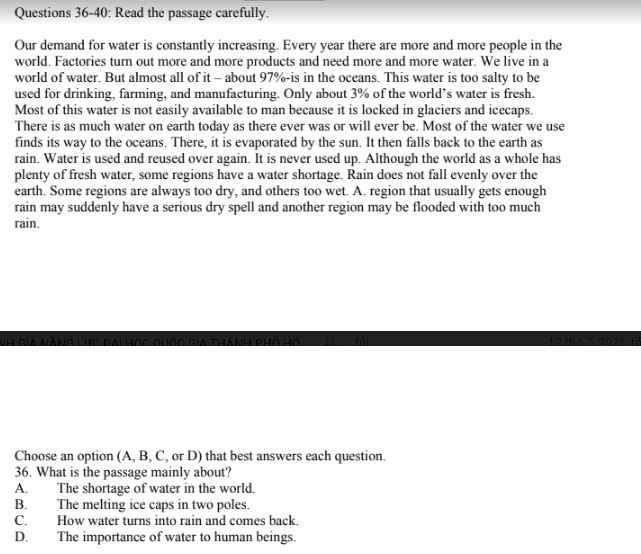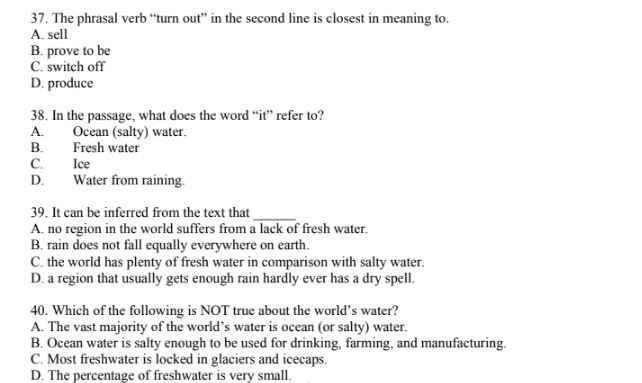Write a text about the disadvantages of being a working mother.
Hãy nhập câu hỏi của bạn vào đây, nếu là tài khoản VIP, bạn sẽ được ưu tiên trả lời.


Social networking websites like Facebook, Twitter and Instagram have become an important part of our everyday life. However, it is argued that these sites have a devastating effect on the community and the individuals. I strongly agree with the thought that social websites have a profound negative effect.
To begin with, social networking sites have started hurting relationships. In the present world, people spend a lot of time online. Hence, they do not have time to visit their friends or relatives. As a result, relationships have become shallow. For example, in the earlier days, individuals used to have get-togethers at least once a month, but nowadays most of the people do not even know many of their relatives. Consequently, there are no close helpful relationships in this era.
Addiction is another drawback of social networks which leads to failure in almost every field. Most of the people waste hours in front of computers or mobile phones chatting and posting on Facebook and Twitter and thus they fail to pay attention to their work. For instance, students do not perform their best in the exams or fail because they spend more time online instead of studying. As a result, social networking sites hinder the progress of the individual and also of the society.
In conclusion, although Facebook and such sites are beneficial to some extent, I strongly agree with the argument that they have more detrimental effect on both the local community and the people. It is hoped that users will realize this and learn to use such platforms more judiciously.I quite agree about that because Facebook and other social networks have negative effects on users because sometimes they bring good benefits but they also bring many negative problems. many fights or arguments are also partly due to social media, there are many inaccurate information written and there are stories that are not true and those stories are based on limited knowledge that make public opinion also think. For example, there are cases of conflicts just because of misunderstandings. A girl sees a handsome guy and also comes to know each other, two people often text and chat and have feelings for him. The boy did not know that the girl had feelings for someone else until he found out, he suggested that he want to meet to talk, but his frustration could not be contained, causing conflicts between the two sides. happens and the closest influence is him but more influence is on his family, the life of the other girl and boy, but still sometimes when those social networking sites help people a lot. I don't know what social networking sites people like but for me Hoc24.vn website is a very useful website it's like a website it's social but it's a useful learning community there are exercises I don't know how to do post the question just a few minutes later I have the answer to my question, not only the correct answer but if there is a part If you don't understand, please point me out. Many people think that social networks are bad but I think that's only partly true. There are many websites and social networks that are good....But the important thing is that we use them. How to use them rationally and usefully.

1.watching/reading
2.playing/doing
3.to go
4.to dream/were
5.showing/to send
6.doing
7,reading
8.thinking/making

Life never stops challenging each of us, difficulties are always inevitable to help us succeed in life. In addition to a good attitude, another factor that contributes to that is the situation. The city is the choice that most people support, but the difficulties it brings are not easier than life in the countryside, let's find out! First I want to talk about the city first, There are many advantages and disadvantages to living in the city. In the city, we will have many opportunities to find work, the roads will not be rough and muddy like in the countryside. Traveling will be easier because there are motorbikes, cars, taxis...Working facilities, companies, schools will have many modern equipment to support learning. Those are just a few of the benefits that I can think of and the next will be the disadvantages, the air pollution in cities is often much more in the countryside because of emissions from factories and vehicles, sources of air pollution. Clean water is also becoming rare because of industrial wastewater and garbage thrown by local people into rivers and lakes. High-rise buildings and constructions are constantly growing, causing trees to have no place to grow and develop, which is also one of the disadvantages. Social evils always occur in a row such as theft, drug addiction ... Next is the countryside, like the city, the countryside also has its own advantages and disadvantages. In the countryside, the air is not polluted and toxic like in the city, the sky is very clear and fresh, almost everywhere is covered with trees and flowers, so it gives us a feeling of peace. Relaxing on a green grass with the wind blowing is a dream that I always pursue. The disadvantage here is that the jobs are very hard and not easy, in the countryside most people will do farming, a hard and hard job. The road is not even, if you go to the mountain road, you will have to go through a real challenge! The means for recreation and entertainment will not be many, and health and education are no exception. Currently, some rural areas have applied advanced scientific technologies, so the work is less arduous.
I write it myself! This is an idea that has a lot of mistakes, please comment
Tham khảo nhé
7 band Some people think that cities are the best places to live. Others prefer to live in a rural area. Compare the advantages and disadvantages of living in the city with life in the countryside. Give reasons for your answer and include any relevant examples from your own knowledge or experience. At the present time, more and more individuals are choosing to live in big cities. Obviously because of the great advantages it has over living in a rural area. In my opinion, although there are some benefits to living in cities, there are also some limitations that need to be considered.

I will celebrate it with a big party.
I will be over the moon.
the person I wanted to see the most would be my old friend - who went away with family 5 years ago.
I would wish that I had a superpower.
I would choose money. :)))))
1. ....I will buy a new laptop (maybe Macbook?)
2. ....I will hug him and say: ''I love you so much'' haha
3. ....would be my dying paternal grandmother, I haven't never met her
4. ....I wish Vietnam would be more and more peaceful, no more epidemics...
5. .... I would choose my person I love <3





Em làm chậm, mong cô duyệt bài ạ:
Women are traditionally known as the roles of mothers and wives. However, today many women are ly to work outside, which has many drawbacks. One of the most important disadvantage is they they do not have enough time to take care of their family. They cannot prepare food or doing the housework. In addition, they will not have time to educate their children well. Another disadvantage is that they have no time to enjoy themselves or relax. They are too busy to finish their work and take care of their family, so they do not have time to make them become more beautiful. Moreover, their health will become worse because they will have to stay up late to complete their assignments. In conclusion, if mothers go to work, they will have many disadvantages.
Besides benefits, being a working mother brings about some disadvantages.
Firstly, these mothers don’t spend enough time with children and family, which extend the distance between mothers and their children. As a result, children get freedom in excess when they don’t see mothers around to stop them from vices. This way they may fall in bad company and inculcate vices in them. Not only this, they might feel alone and find for company as mothers are not available for kids due to work.
Secondly, despite working to earn money, they still have to take care of families, which makes them even more tired and depressed with such a heavy burden. After working for 8 hours continuously in office creates fatigue and tiredness. The activeness vanishes the moment mother reaches home. But their housework’s still undone, and they are the ones who finish them. Although husband may share with their wives, but in most families, wives are still people who do all the chores.
Finally, working mothers can meet inequality in workplace, they may be paid fewer though they do the same work with men. Nowadays, harassment is a quite threatening problem in offices, which affects their work’s quality.
Clearly, mothers should consider choosing working or staying at home.